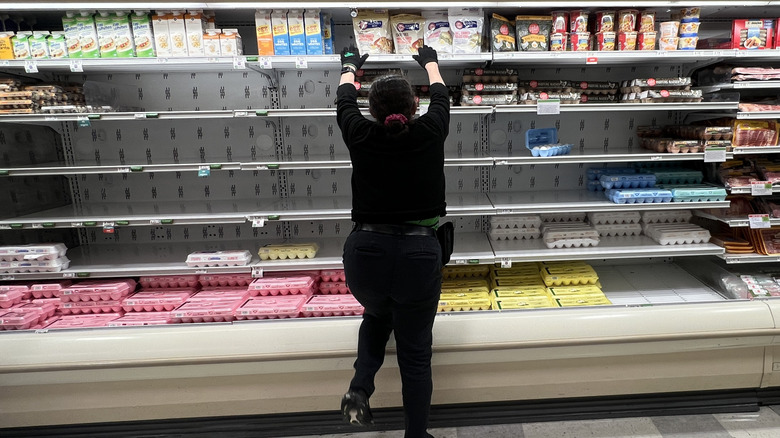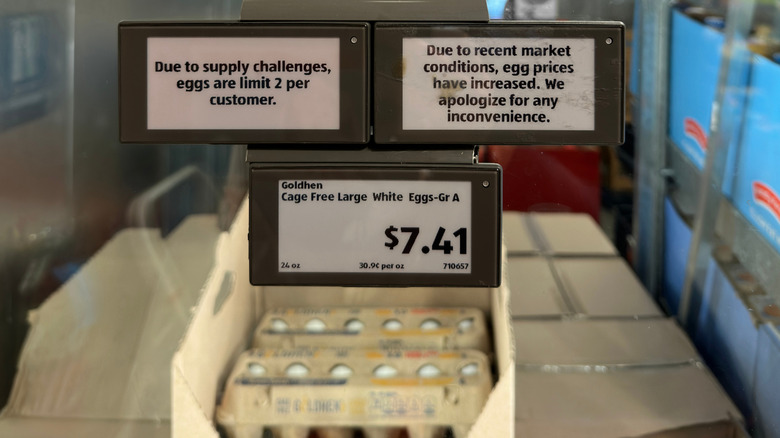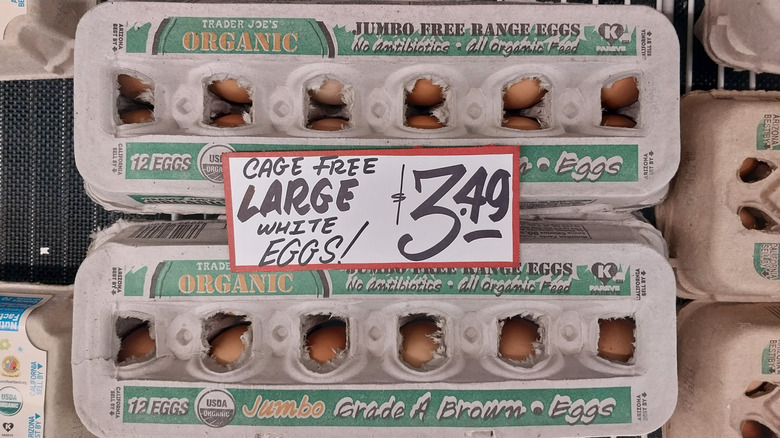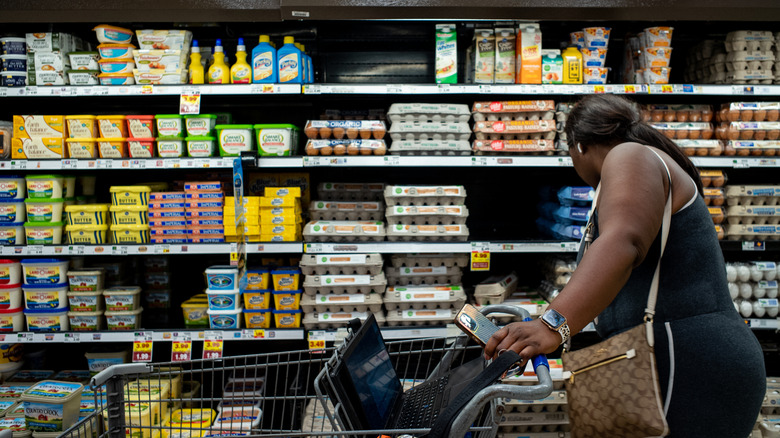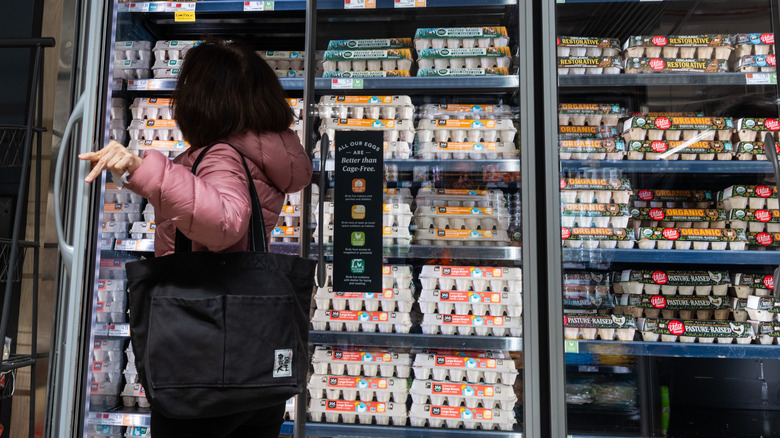The 5 Stores Now Limiting How Many Eggs Customers Can Buy
The ongoing egg shortage not only has restaurants adding surcharges to egg-centric menu items, but also has grocery shoppers in a stockpiling frenzy reminiscent of the great toilet paper fiasco of 2020. However, as consumers flock (pun intended) to fill their refrigerators with eggs, they might be stopped in their tracks by newly-implemented egg purchasing limits.
Yes, much like the toilet paper purchase limitations that were widespread during the peak of COVID, many grocery stores are now regulating the number of eggs customers can take home. At least five major grocery chains have implemented these limitations across the country, with more likely to join as the bird flu epidemic continues.
The issues with avian flu and the resulting record-breaking egg prices have been plaguing farmers and consumers alike since 2022. At the beginning of February 2025, over 150 million birds have died as a result of this historic outbreak, according to the U.S. Centers for Disease Control and Prevention. The loss of such a large portion of the egg-laying flock has resulted in widespread egg shortages at many grocery stores.
Specific policies to address the egg shortage vary by retailer and location, but no matter where you are, your morning scramble is likely to be a bit pricier and a bit more difficult to come by. Here are the grocery chains currently curbing their customers' egg purchases.
1. Aldi
Although Aldi has not yet released a statement or nationwide notice to its customers, plenty of people have spotted signs in their local stores notifying customers of limitations on their egg purchases. Where these limitations exist, they are typically reported at two cartons per person per transaction.
In some areas, in addition to the purchasing limits, the stores have also posted signs in the refrigerated section apologizing for the increased price of eggs. The signs state, "Due to recent market conditions, egg prices have increased. We apologize for any inconvenience."
2. Costco
Costco notified customers on its website that their egg purchases would be limited "due to supply challenges caused by the highly pathogenic avian influenza." Both eggs and egg products were part of this notice, and the warehouse chain began by limiting online purchases of eggs to a maximum of five packages. However, eggs have since disappeared entirely from the online ordering platform in some markets.
As for in-store shopping, the limitations are likely to vary by location, but in general customers are currently restricted to three packages of eggs per purchase. While three packages may not seem like a lot, Costco is known for its bulk buys, and each of these packages does contain several dozen eggs.
3. Trader Joe's
Also among the retailers limiting the sale of eggs is Trader Joe's. Trader Joe's is currently limiting egg purchases to one dozen per customer per day.
"We hope these limits will help to ensure that as many of our customers who need eggs are able to purchase them when they visit Trader Joe's," the company said in a statement to The Associated Press.
On the bright side, it appears the chain has kept its egg prices relatively low compared to some others. One Reddit user posted celebrating their ability to snag a dozen eggs for under $4 at their local Trader Joe's, as opposed to the almost $10 price tag they saw at Kroger.
4. Kroger
Speaking of eggs at Kroger, the grocery chain has set its own egg buying limits at various stores nationwide. While these limits will certainly vary among the more than 2,500 Kroger stores across the U.S., many customers have noticed signs limiting egg purchases to just two cartons per customer.
The retailer has not yet put out a statement regarding these limits, but price increases are already causing some friction. In a Reddit post from two weeks ago, one user notes the cost of a case of 60 eggs jumping close to 25% (from $26.59 to $32.89) in just a single day.
5. Whole Foods
Whole Foods is among the retailers that have not yet issued a release regarding limits on eggs, but customers have reported seeing signs in various stores nationwide. The signs in many Whole Foods locations limit customers to three cartons of eggs per transaction, citing supply issues as the cause of these limitations.
Whole Foods is also known for holding specific standards for its eggs. The grocery chain notes on its website that the eggs it sells must all be "cage-free or better." The grocery brand labels its eggs with one of four logos to detail how the hens were raised: Cage-Free Plus, Outdoor Access, Pasture Raised, or Outdoor Living. While admirable, these higher standards for eggs may add to the supply difficulties for Whole Foods throughout the ongoing bird flu epidemic.
